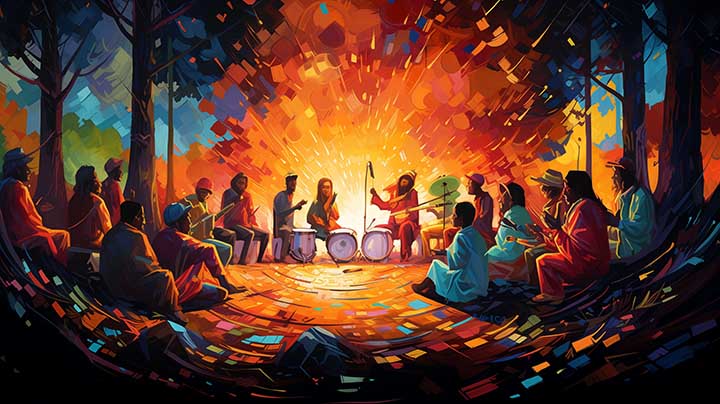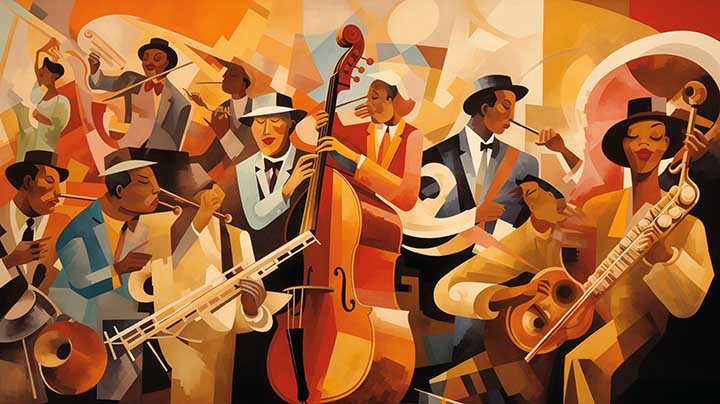Drum circles have been a part of human culture for centuries, and their value extends far beyond just making music. These communal gatherings, where people come together to play drums and other percussion instruments, have a profound impact on individuals and communities alike.
1. Cultural and Historical Significance:
Drum circles have roots in ancient civilizations and indigenous cultures around the world. They have been used for various purposes, including religious ceremonies, healing rituals, and social gatherings. The rhythmic beats of drums have the power to transcend language and cultural barriers, bringing people together in a shared experience of music and rhythm.
2. Personal Expression and Creativity:
Participating in a drum circle allows individuals to express themselves creatively through rhythm and sound. Unlike traditional music performances, drum circles emphasize improvisation and collaboration. Each participant has the freedom to explore their own unique rhythms and contribute to the collective groove. This creative outlet can be incredibly liberating and empowering, fostering a sense of self-expression and personal growth.
3. Stress Relief and Emotional Well-being:
Drumming has been shown to have numerous therapeutic benefits. The repetitive and rhythmic nature of drumming can induce a state of relaxation and reduce stress levels. The act of drumming also releases endorphins, which are natural mood enhancers. Drum circles provide a safe and supportive environment for individuals to release pent-up emotions, find emotional release, and improve their overall well-being.
4. Community Building and Social Connection:
Drum circles are inherently communal activities. They bring people from all walks of life together, fostering a sense of unity and connection. In a drum circle, participants must listen to each other, communicate non-verbally through rhythm, and work together to create a cohesive musical experience. This collaborative effort builds trust, empathy, and a sense of belonging within the community.
5. Cultural Appreciation and Diversity:
Drum circles often incorporate rhythms and instruments from various cultures around the world. By participating in a drum circle, individuals have the opportunity to learn about different musical traditions and appreciate the diversity of human expression. This fosters cultural understanding, respect, and appreciation for the rich tapestry of global music.
6. Mindfulness and Presence:
Drumming requires focus and concentration on the present moment. When participants are fully engaged in the rhythm, they enter a state of mindfulness, where worries and distractions fade away. This meditative quality of drumming can help individuals cultivate a sense of presence and inner peace.
7. Physical Fitness and Coordination:
Playing drums and percussion instruments requires physical movement and coordination. Drum circles provide a fun and engaging way to exercise and improve motor skills. The rhythmic patterns and repetitive motions of drumming can enhance hand-eye coordination, fine motor skills, and overall physical fitness.
Drum circles offer a multitude of benefits that go beyond just making music. They provide a platform for personal expression, stress relief, community building, cultural appreciation, mindfulness, and physical fitness. Whether you are a seasoned musician or a complete beginner, participating in a drum circle can be a transformative and enriching experience. So, grab a drum, join a circle, and let the rhythm guide you on a journey of self-discovery and connection with others.




